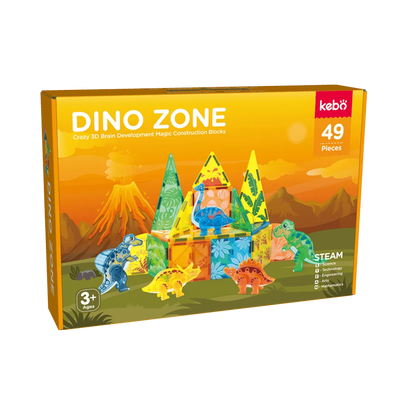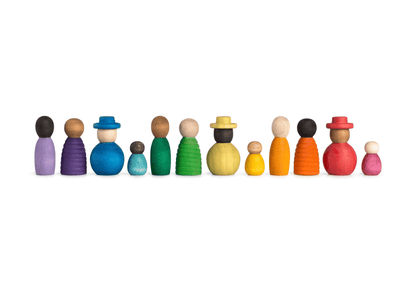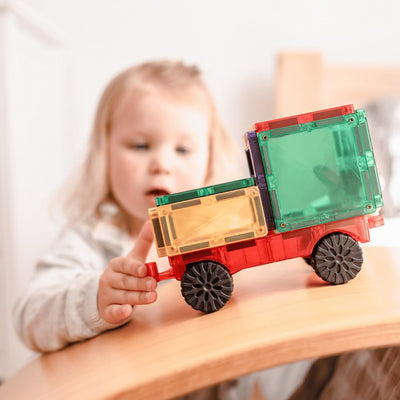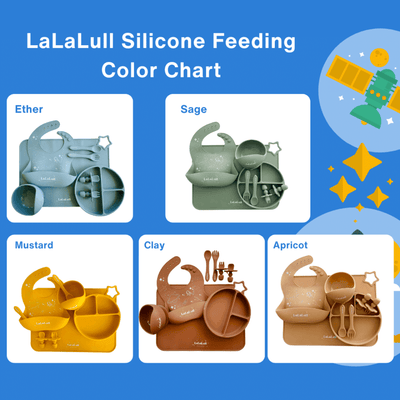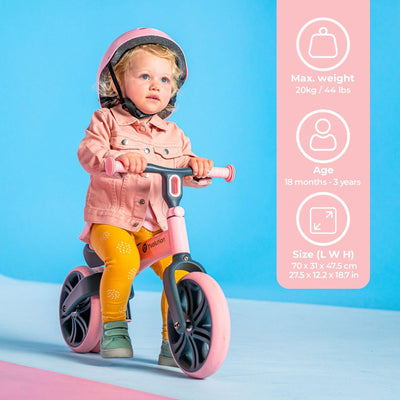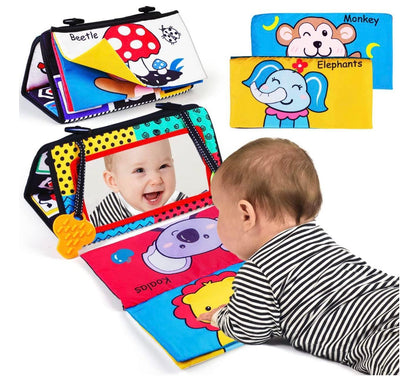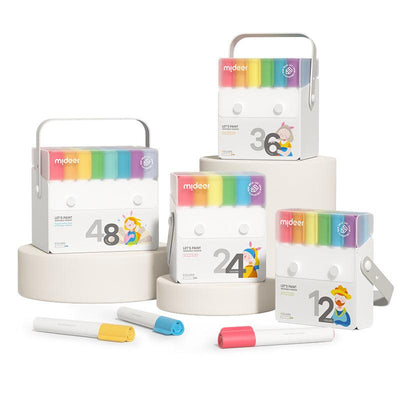In the world of early childhood education, finding toys that are both engaging and educational can be a challenge. Magnetic tiles have emerged as a standout option, captivating young minds while providing a plethora of developmental benefits. But what exactly makes these colorful, geometric tiles so valuable for children’s learning and development? Let’s delve into the science behind magnetic tiles and understand their educational value.
Cognitive Development
Magnetic tiles are a powerful tool for cognitive development in young children. Here’s how:
1. Spatial Awareness and Geometry:
- When children play with Magnetic tiles, they engage in activities that require them to visualize and manipulate shapes. This helps develop their spatial awareness, a crucial cognitive skill. They learn about geometric concepts such as symmetry, balance, and three-dimensional structures, laying a foundation for future learning in math and science.
2. Problem-Solving Skills:
- Building structures with magnetic tiles often involves trial and error. Children must figure out how pieces fit together and how to create stable constructions. This process enhances their problem-solving skills and encourages logical thinking. They learn to predict outcomes, test hypotheses, and refine their strategies, all of which are essential cognitive skills.
3. Creativity and Imagination:
- Magnetic tiles provide an open-ended play experience, allowing children to use their creativity and imagination. They can build anything from simple shapes to complex structures, fostering innovative thinking and creative expression. This kind of play stimulates brain development and encourages children to think outside the box.
Physical Development
In addition to cognitive benefits, magnetic tiles also support physical development:
1. Fine Motor Skills:
- Manipulating the tiles helps children develop fine motor skills. Picking up, positioning, and connecting the tiles require precision and control, strengthening the small muscles in their hands and fingers. This is crucial for tasks like writing, drawing, and using utensils.
2. Hand-Eye Coordination:
- As children align and attach the tiles, they enhance their hand-eye coordination. This skill is important for many daily activities and academic tasks, including sports, playing musical instruments, and performing experiments in science.
Social and Emotional Development
Playing with magnetic tiles can also have positive effects on social and emotional development:
1. Collaborative Play:
- Magnetic tiles are an excellent resource for group play. Children can work together to build structures, fostering teamwork, communication, and cooperation. They learn to share ideas, negotiate roles, and collaborate effectively, which are essential social skills.
2. Emotional Resilience:
- Building with magnetic tiles often involves trial and error. When constructions collapse or don’t turn out as planned, children learn to deal with frustration and disappointment. This helps build emotional resilience and teaches them the value of perseverance and patience.
Educational Benefits
Magnetic tiles can enhance learning in various subject areas:
1. Mathematics:
- Through play, children explore mathematical concepts such as counting, sorting, and pattern recognition. They also learn about shapes, symmetry, and geometric principles, which are fundamental to early math education.
2. Science:
- Magnetic tiles introduce children to basic principles of physics and engineering. They learn about magnetism, gravity, and structural integrity, fostering an interest in STEM (science, technology, engineering, and mathematics) fields.
3. Art and Design:
- The creative aspect of Magnetic tiles encourages children to experiment with color, design, and architecture. This promotes an appreciation for art and design and can inspire future interests in these areas.
Conclusion
The educational value of Magnetic tiles is rooted in their ability to support cognitive, physical, social, and emotional development. By engaging in play with these versatile toys, children develop essential skills that lay the foundation for lifelong learning. Whether at home or in the classroom, magnetic tiles offer a fun and effective way to enhance early childhood education. So the next time you see a child engrossed in building with magnetic tiles, remember that they are not just playing—they are learning, growing, and developing in remarkable ways.
